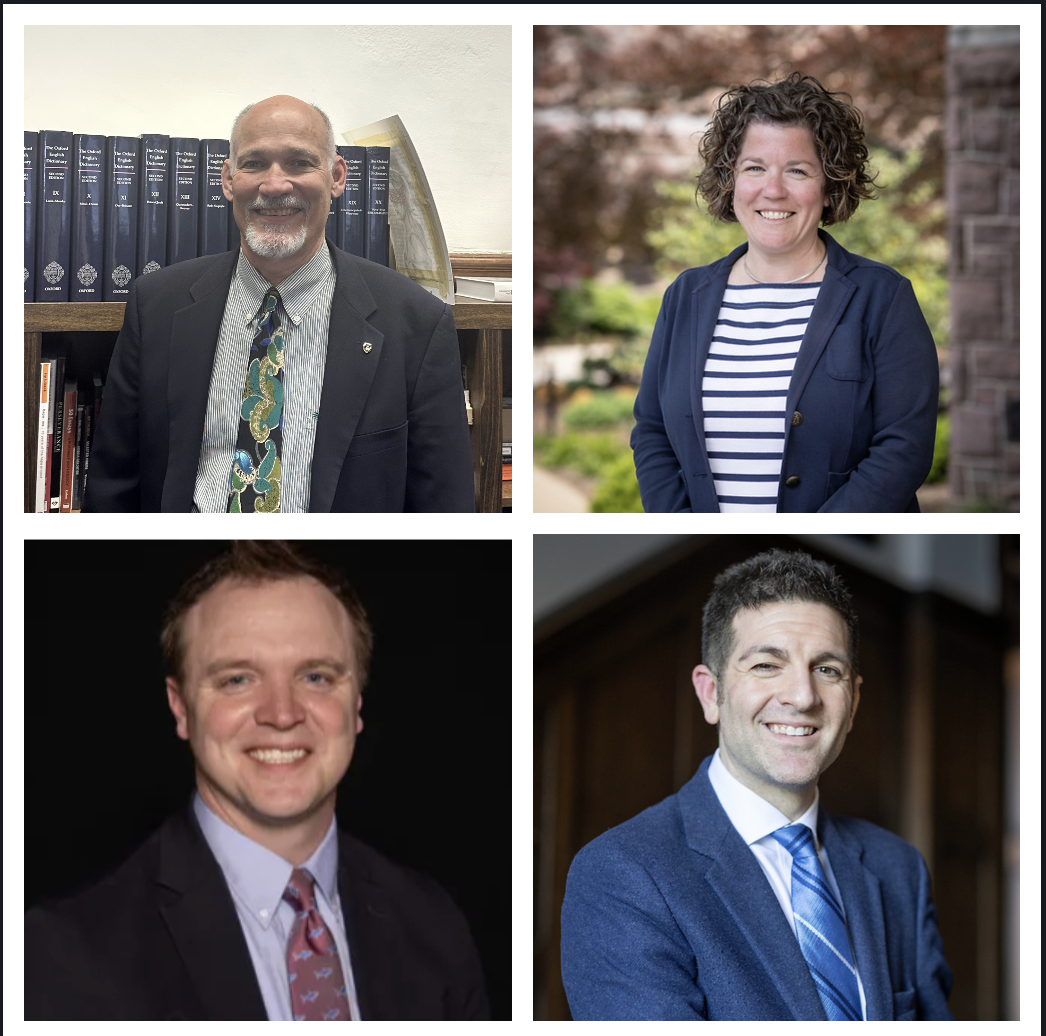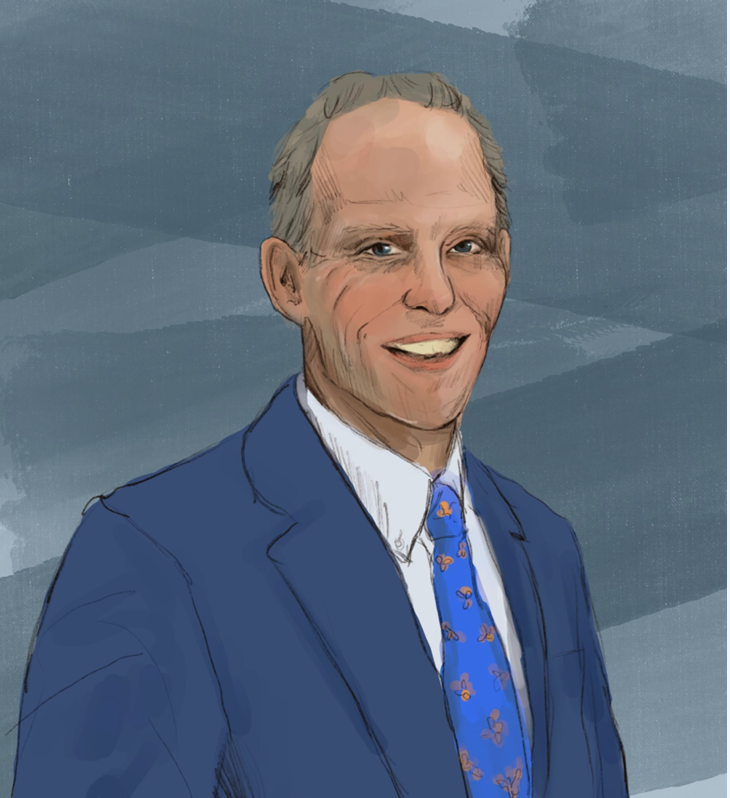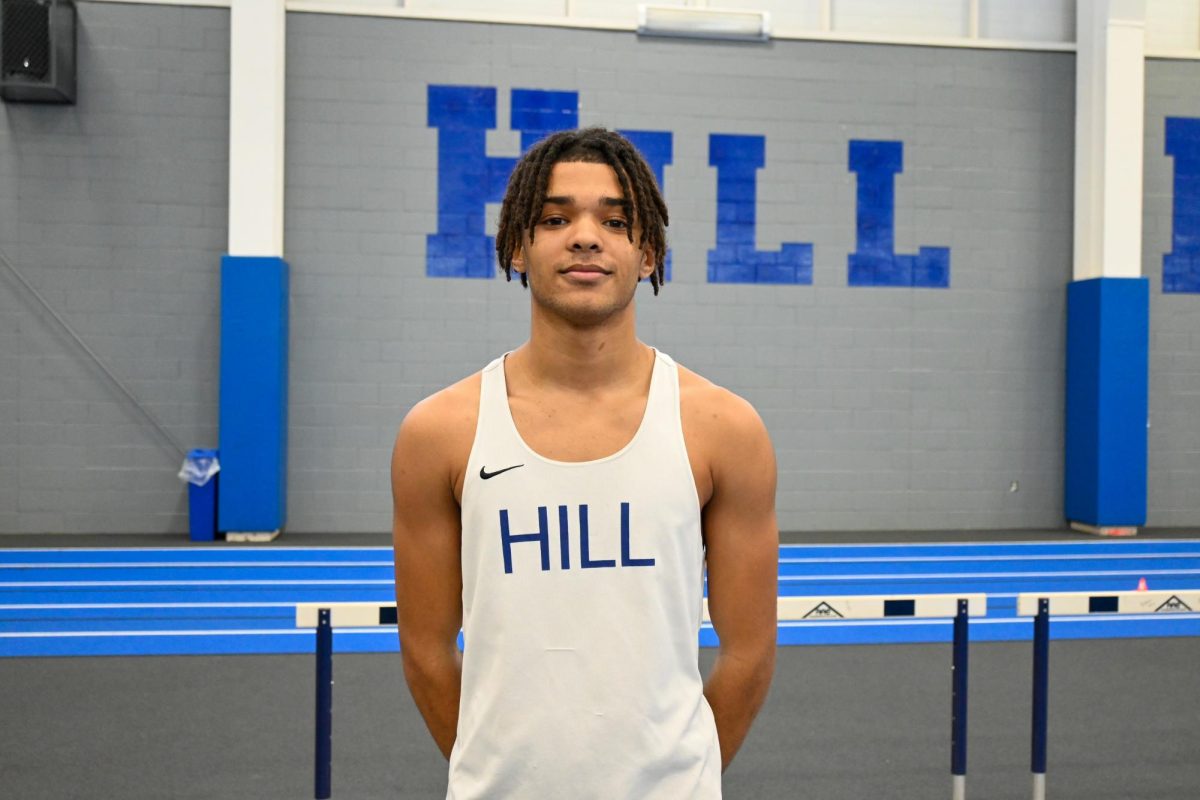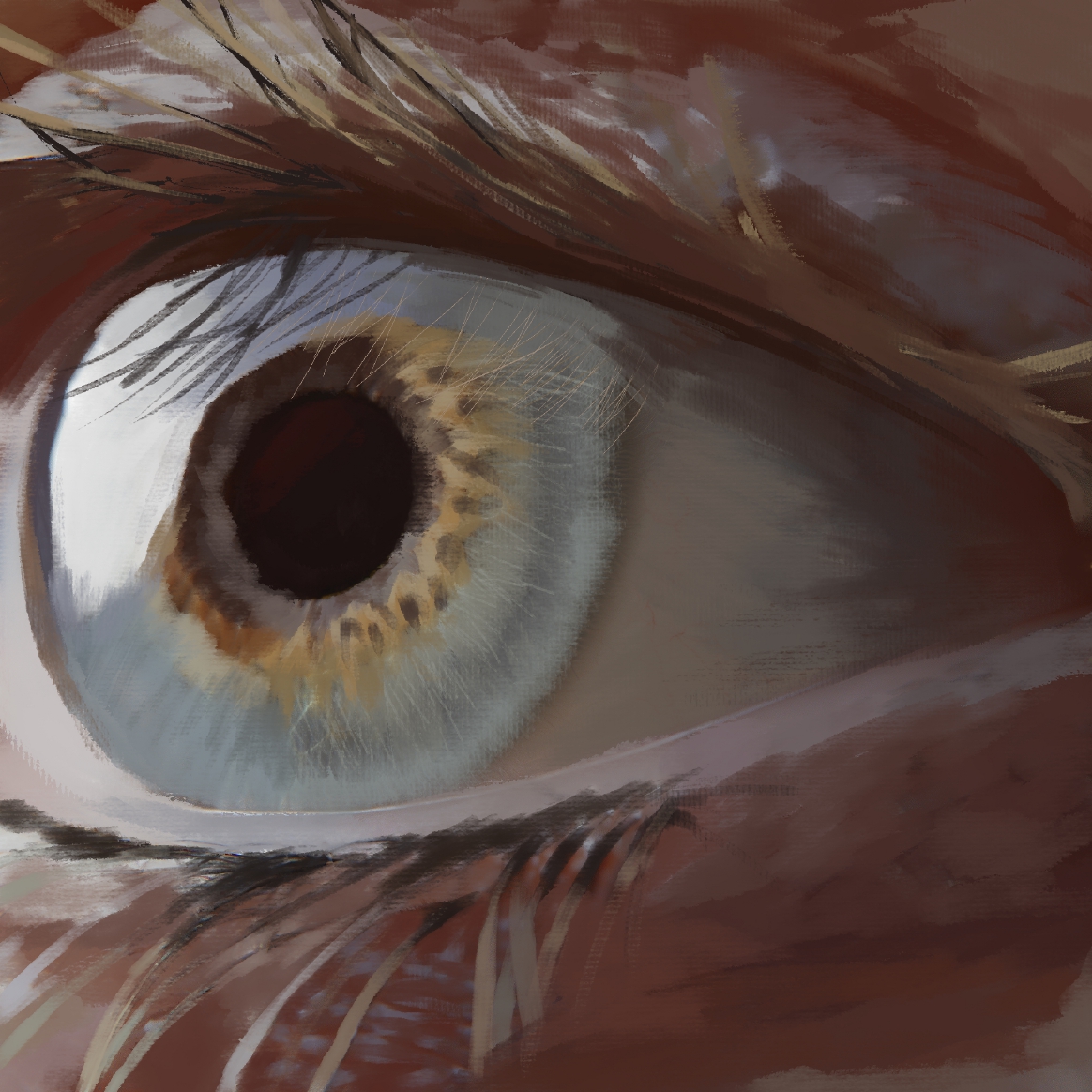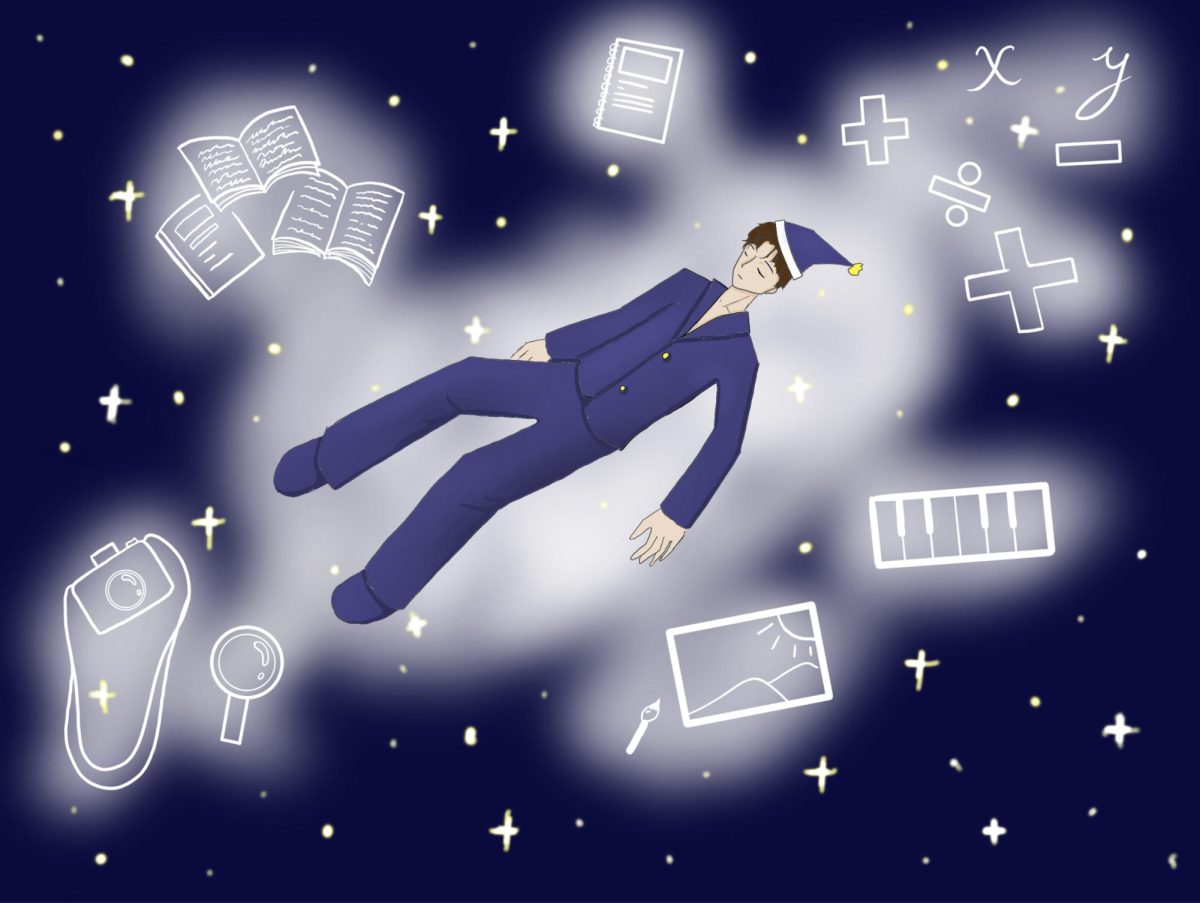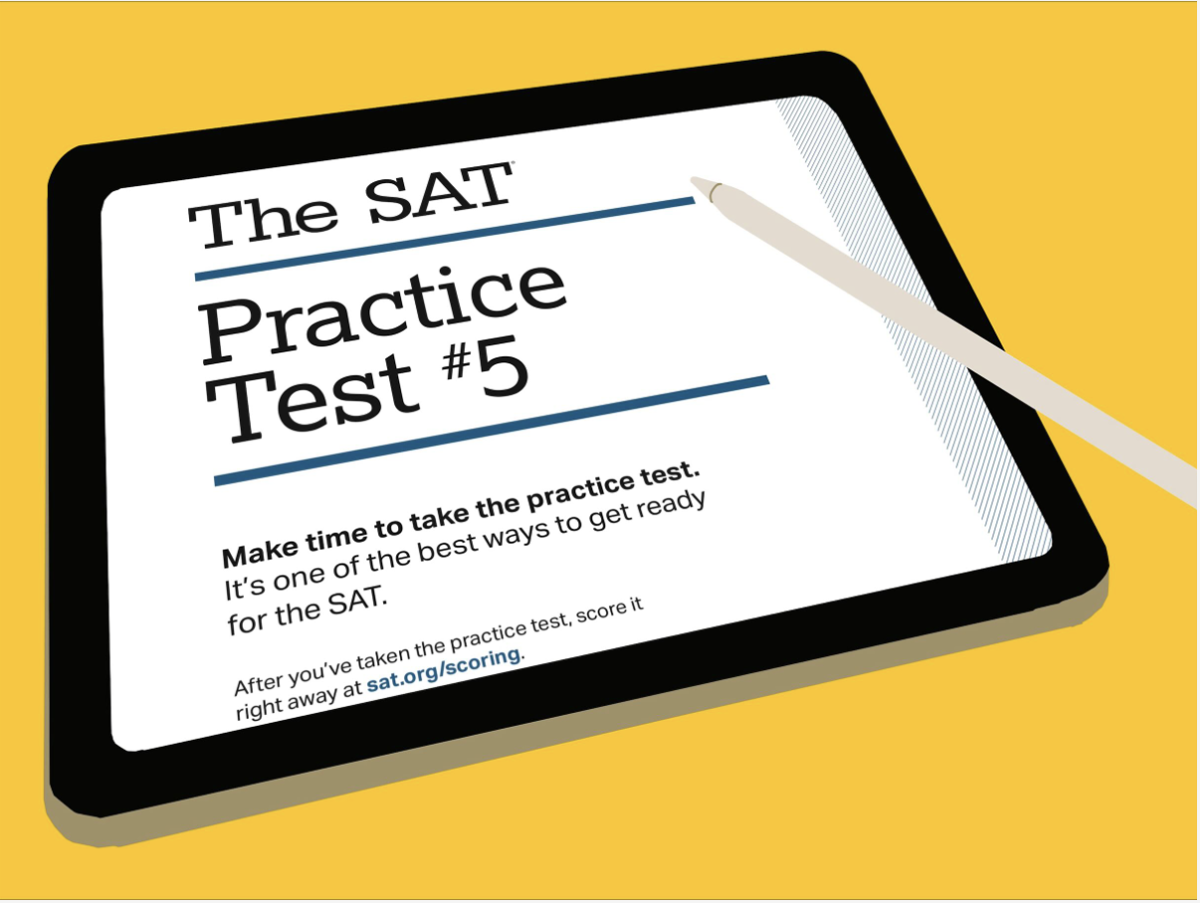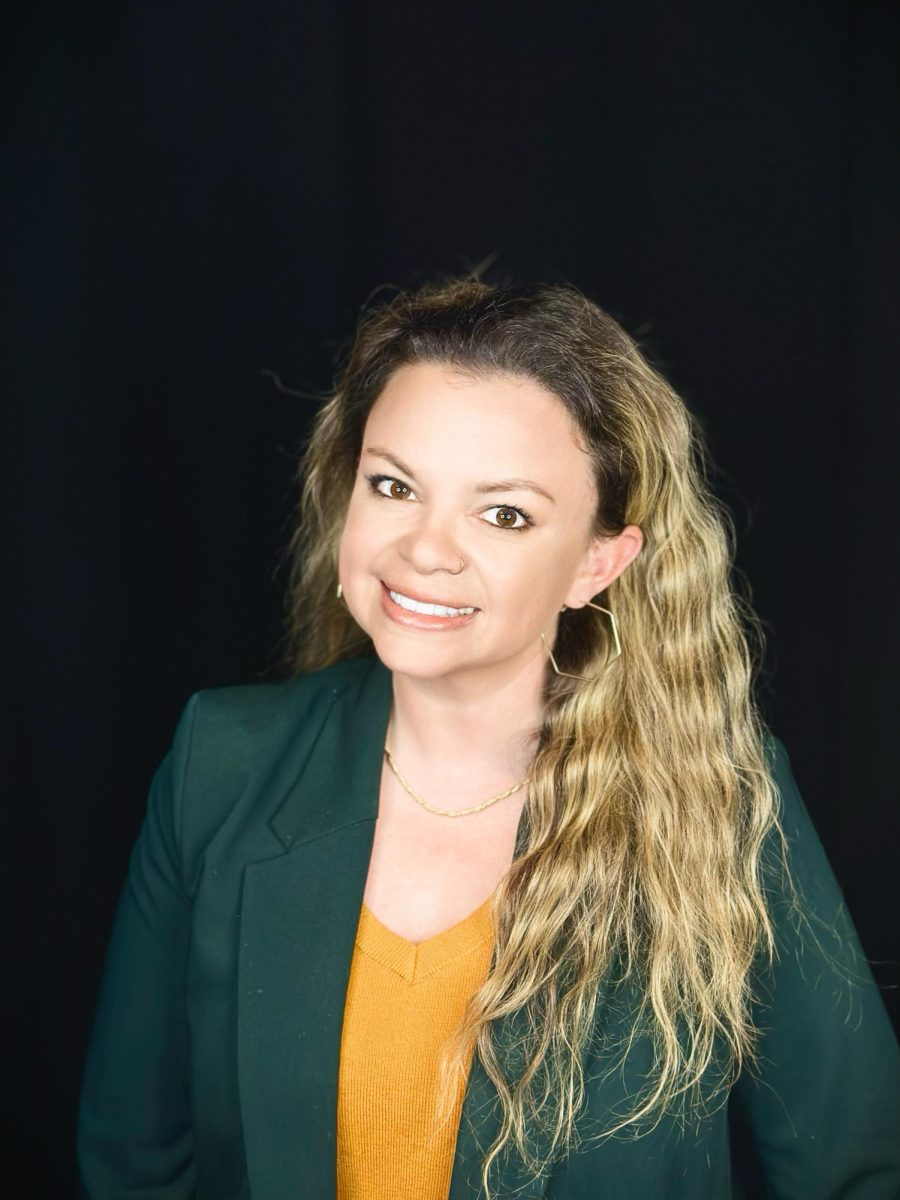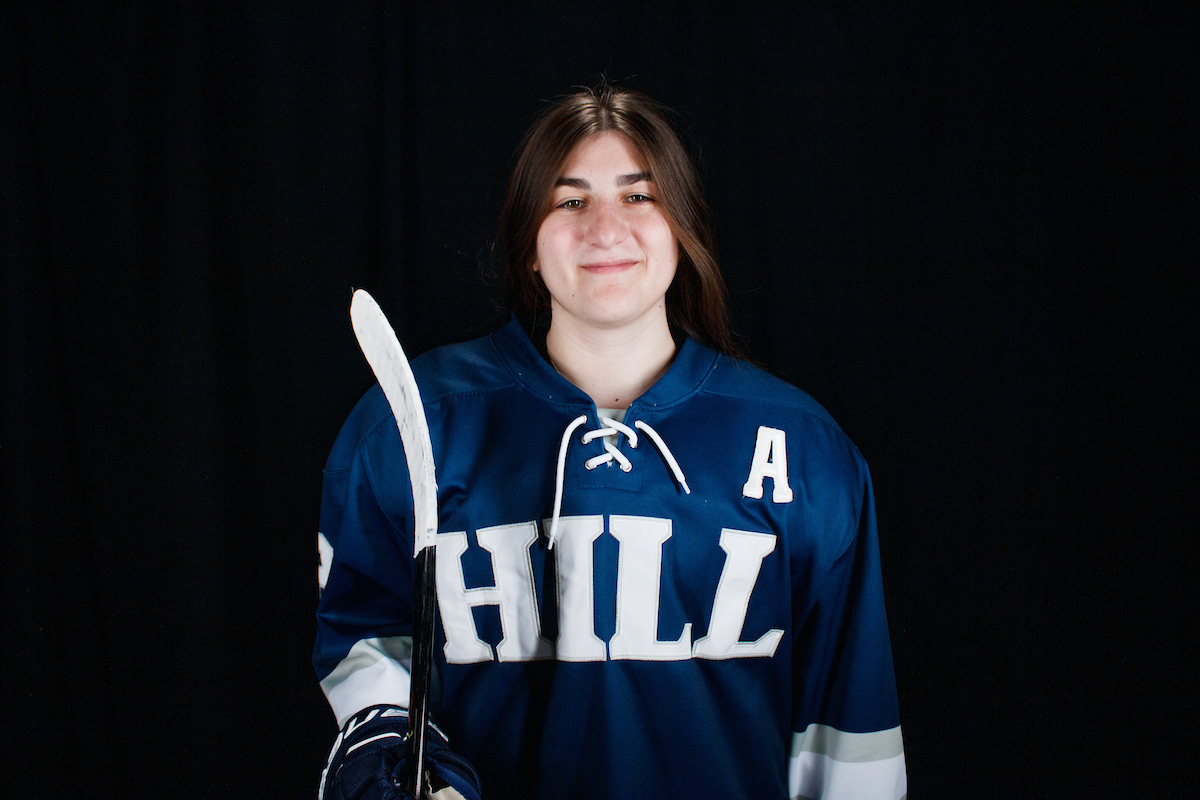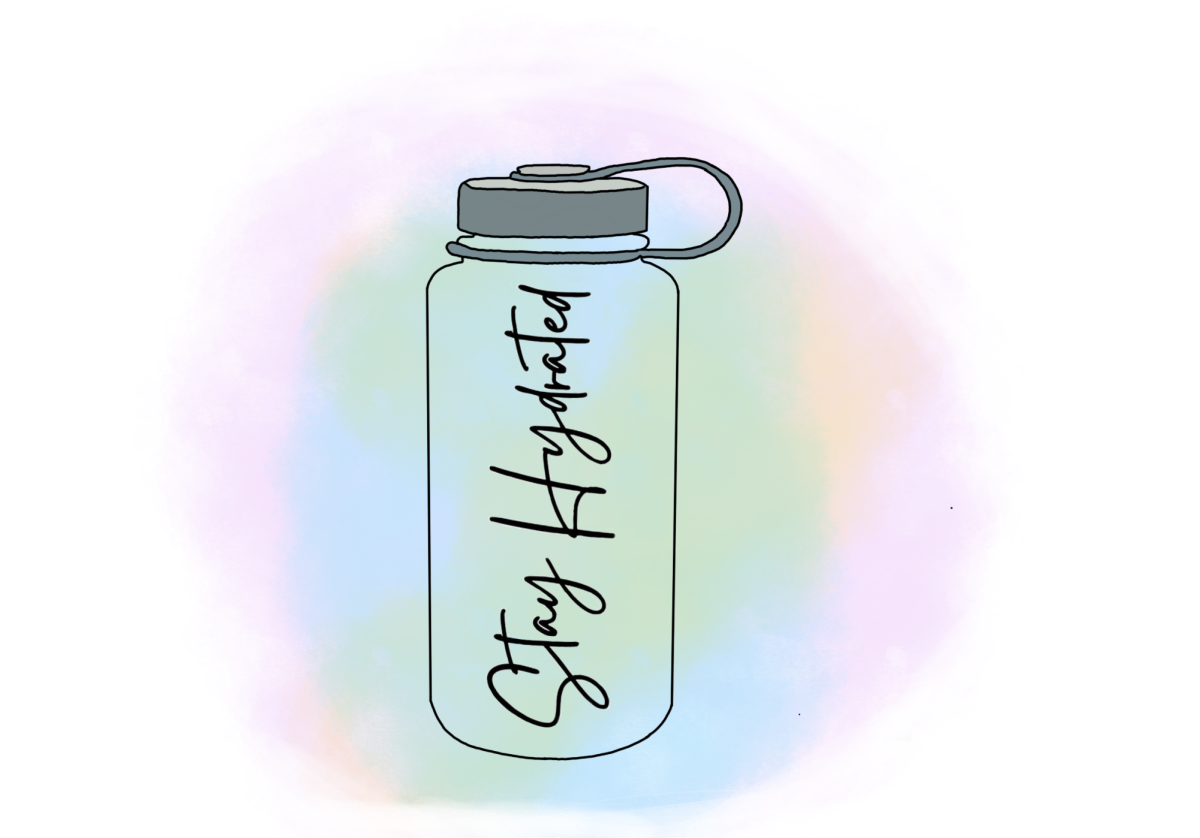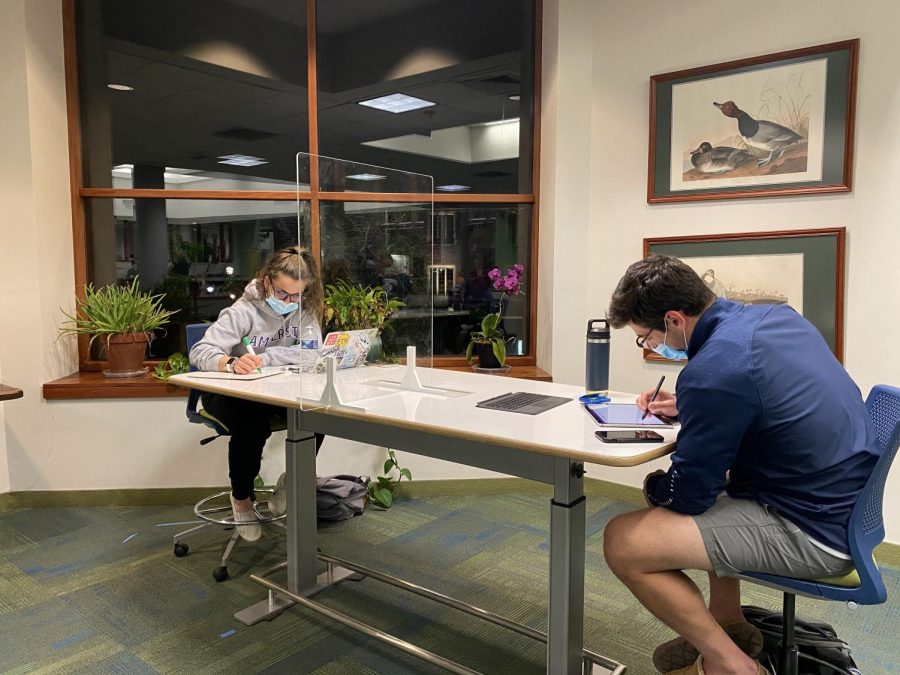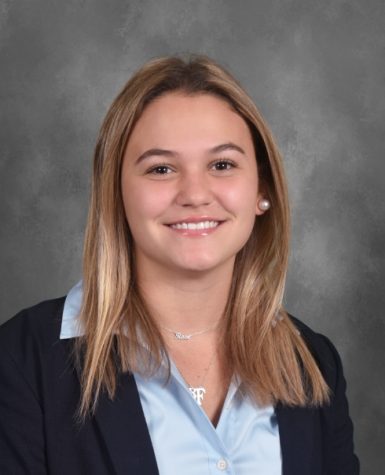Hill students adjust to being a teenager during a pandemic
Students follow library COVID-19 rules to practice safe studying with others. Photo by Rose Flaherty ’23
The Hill “bubble” is a common phrase you hear when you attend the school. Hill is normally isolated from the outside world and in its own environment. The pandemic, however, has popped that sense of safety and security that community members are used to. Last year, the rise of COVID-19 successfully shut down campus, diminishing the bubble effect within Hill’s borders.
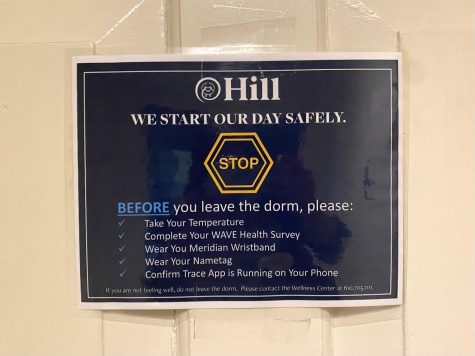
A typical day at Hill this year starts with taking your temperature, completing your Wave health check, and masking up before leaving your dorm room. These few tasks were newly introduced as precautions for the COVID-19 pandemic. While most things may seem the same as they would in a normal year in the realm of academics and athletics, many adjustments were made to reopen this fall and have affected community members differently.
Students at Hill along with teenagers all over the world have been struggling with various aspects of the COVID-19 protocols, specifically in schools. Jesse Corser-James, a new 4th form boarder, said one difficulty is that “teenagers are programmed to rebel, and, when given more orders and rules, it makes it worse.”
Greta Haverstick, a 6th former and prefect, brought awareness to how challenging it is to prefect 4th form girls. “There is a lot of added stress,” Haverstick said, “I am always trying to advocate for them but also have to enforce COVID-19 rules.”
See below for video of students sharing their experience this year:
This video features Cole Bilotta ’23, Kim Monzingo ’23 and Maeve Redmond ’23.
Corser-James is a boarder who has struggled with his mental health this year, “I have definitely been sadder since the pandemic started, I think everyone has been a bit sad, there isn’t much to do about it, but I try to keep a positive attitude.” Mental health has been a buzzing topic on Hill’s campus in recent years. Hill has introduced many programs that have been an outlet for students.
Lisa Roethling, the director of counseling at Hill, recognized last year that the pandemic would worsen existing mental health problems and lead to more cases because of the unique combination of the public health crisis, social isolation, grief a![]() nd loss. The counseling program has put lots of time and effort into revamping its services.
nd loss. The counseling program has put lots of time and effort into revamping its services.
“Hill hired four full-time School Clinicians, created a drop-in model with a counselor on call every day, so any student in distress can speak to a counselor in real-time,” Roethling wrote. Roethling also worked with students to create the Students Advocating for Mental Health Committee. This is a student-led group that focuses on decreasing the stigma of mental health on our campus.
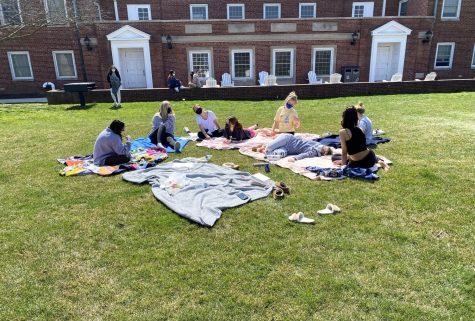
Haverstick shared that being in a pandemic no matter where you are means less contact with other people and loss of opportunity for connection. She said, “We’re all at the age we need to be socializing, and it’s one of the worst things for our development to be separated from people.”
When Hill shut down in March of 2020 students were devastated, so to reunite with friends in and out of the classroom in August was exciting for most. However, this year’s experience was certainly altered due to the pandemic. Sixth former Julia Weiss is also a pref![]() ect and was one of many students who were hesitant about what campus would look like coming back from the summer.
ect and was one of many students who were hesitant about what campus would look like coming back from the summer.
In-person classes are a “luxury compared to any alternative,” Weiss said. However, she explained there is now “a lot more to take into consideration as a prefect because nobody wants the school to shut back down. It’s nobody’s fault, but at times it’s hard to understand and accept all of it.”
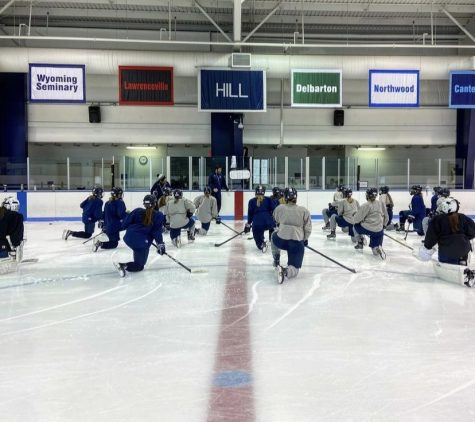
Many positive things were introduced to Hill this year that would have never happened, such as the Low-Residency Program for varsity athletes. The school planned to shut down over the winter months to avoid the spread of COVID-19 at its peak. However, Hill accommodated for winter varsity athletes to stay on campus while other students stayed home.
Molly Riggi, a new 5th former, is a varsity athlete who attended the school’s low-residency program this winter. She enjoyed having an opportunity to bond with the team without having to juggle school as well. “The LRP was great, but so was the long break we got,” she said. “Winter months are sometimes really hard work-wise, so I feel like H-term was beneficial for everyone.”
The LRP seemed to be popular across the winter varsity athletes. It was a somewhat normal experience for these student-athletes. “There were some great opportunities that came out of this though. In a normal year we probably wouldn’t get the opportunity to train and live as a team,” Weiss said.
While boarders had some major changes to adjust to, remote and day students also had to alter their regular lifestyles this year. Riggi was remote this year for a small portion of the fall to play club hockey, she has been remote for the spring term to continue on with her club team to prep for nationals.
Riggi brought light to being a remote learner and said, “The pandemic has changed both academic and athletics for me. There had to be some kind of sacrifice made in either direction.”
Being a day student this year has posed its challenges too, Quin Craig, a 4th form day student, mentioned that it has been difficult socially this year: “I feel like I haven’t met most of the boarders because I am a day student. But I also can’t see other people when I go home either.”
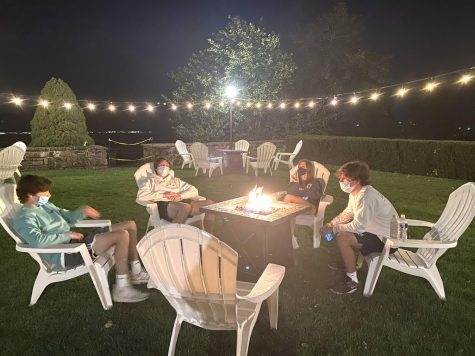
On top of that, day students also have the added stress of commuting to school and not having everything at their fingertips. Managing time properly, especially after a long day is the hardest. “It’s difficult to make sure I always get enough sleep for the next day,” Craig said.
Something else Hill had to keep into consideration was campus leaves and welcoming outsiders onto campus. This resulted in a different type of bubble for people within the Hill community. For the majority of the fall, boarders were unable to leave campus, and family members couldn’t visit.
Corser-James said it was hard on his parents since they were all the way in Colorado. “It’s also challenging to make time for them on the phone, oftentimes I’m too busy,” he continued.
Weiss also expressed concern in this area. “Not being able to come and go from campus to back home has made things different,” she said. “I am hopeful that if we do a good job this spring we will have more freedom.”
Mackenzie Smith, a 5th form prefect, talked about how she and her freshman dorm were able to overcome some difficulties and certain protocols to try and make it more like a normal year.
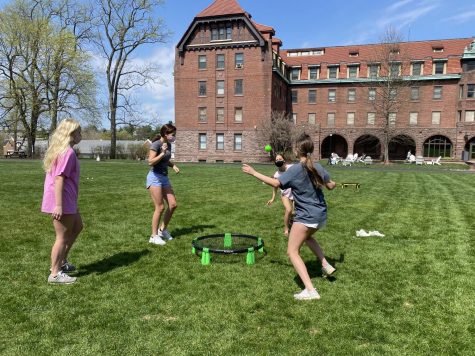
“I had to get more creative with things like family night this year to make them covid friendly, but overall as a dorm, we have made the best of it and by now everyone is pretty comfortable with where they are at,” Smith said.
The adversity teenagers that attend Hill have faced allowed them to get more creative and do things that wouldn’t be around in a normal year. “Taking advantage of our outside spaces and just making normal things a little more safe has been the key to getting through this year,” Smith said.
While many students felt a variety of emotions, however, the majority were pleased to be back. Weiss said, “This year has been a lot to tackle mentally, emotionally, and socially but it was a luxury to be back on campus, in the classroom, and with my friends for my last year at Hill.”

